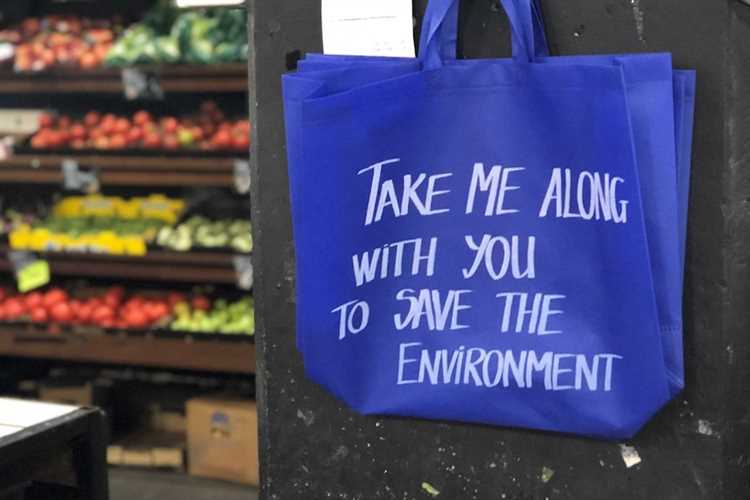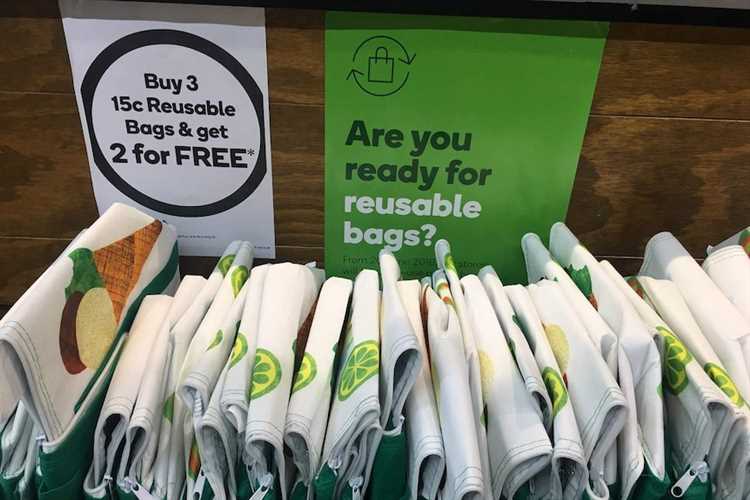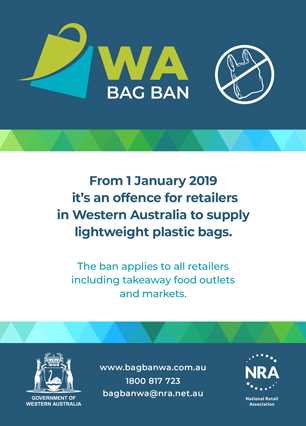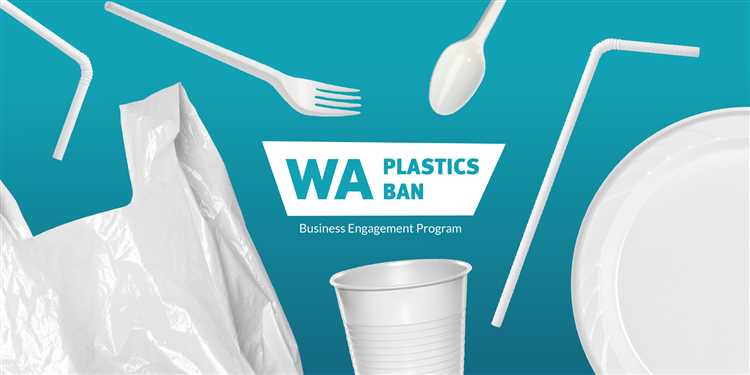
Western Australia has taken a bold step towards reducing plastic waste by implementing a ban on single-use plastic bags. This move is part of a larger effort to protect the environment and preserve the state’s natural beauty for future generations.
The ban, which went into effect on July 1st, 2018, prohibits retailers from providing lightweight plastic bags to customers. This means that shoppers now need to bring their own reusable bags when visiting stores, or purchase alternative options like durable plastic bags or cloth bags.
The decision to implement the ban was based on the significant environmental impacts of plastic bags. These bags are notorious for their long lifespan and ability to persist in the environment for hundreds of years. They pose a serious threat to wildlife, particularly when they end up in waterways, where they can be mistaken for food by marine creatures.
It is estimated that Western Australians use over 670 million plastic bags each year, contributing to the global plastic pollution crisis. By eliminating single-use plastic bags, the state aims to reduce litter, protect marine life, and promote more sustainable shopping habits.
So, what does this mean for Western Australians? It means that we all need to embrace the change and be more conscious of our plastic consumption. It’s time to make reusable bags a part of our everyday routine and say goodbye to single-use plastic bags. Together, we can make a difference and create a cleaner, greener future for our beautiful state.
- Overview of the Plastic Bag Ban
- Reasons behind the Plastic Bag Ban
- 1. Environmental Impact
- 2. Marine Life Protection
- 3. Waste Reduction
- 4. Conservation of Resources
- Impact on the Environment
- Alternatives to Plastic Bags
- How the Ban Affects Consumers
- 1. Shopping Habits
- 2. Additional Costs
- 3. Adjustments to Shopping Routine
- Implementation and Enforcement of the Ban
- Q&A:
- Why has Western Australia banned plastic bags?
- When did the plastic bag ban go into effect in Western Australia?
- What are the alternatives to plastic bags in Western Australia?
- What are the penalties for violating the plastic bag ban in Western Australia?
- How will the plastic bag ban affect businesses in Western Australia?
Overview of the Plastic Bag Ban
The Plastic Bag Ban in Western Australia was implemented in July 2018 as part of a statewide effort to reduce plastic pollution and promote sustainable practices. The ban applies to lightweight plastic bags commonly used at supermarkets, retail stores, and takeaway food outlets.
Under the ban, retailers are prohibited from providing single-use plastic bags to customers. This means that shoppers are encouraged to bring their own bags or purchase reusable bags from the store. The ban applies to all retail businesses, including both large and small operations.
The ban was introduced as a response to the harmful environmental impact of single-use plastic bags. These bags are known to contribute to litter, harm wildlife, and have a significant impact on marine ecosystems. By reducing the use of plastic bags, Western Australia aims to protect its natural environment and preserve its biodiversity.
In addition to the ban on single-use plastic bags, the Western Australian government has also implemented initiatives to promote recycling and reduce waste. These include educational campaigns, community programs, and infrastructure improvements. The government is working closely with businesses and communities to ensure a smooth transition away from plastic bags and towards more sustainable alternatives.
| Key Points of the Plastic Bag Ban: |
|---|
| – The ban applies to lightweight plastic bags used at supermarkets, retail stores, and takeaway food outlets. |
| – Retailers are prohibited from providing single-use plastic bags to customers. |
| – Shoppers are encouraged to bring their own bags or purchase reusable bags. |
| – The ban aims to reduce plastic pollution and protect the environment. |
| – The government is implementing other initiatives to promote recycling and waste reduction. |
Reasons behind the Plastic Bag Ban
There are several key reasons behind the plastic bag ban in Western Australia:
1. Environmental Impact
Plastic bags are a major contributor to environmental pollution. They are non-biodegradable and can take hundreds of years to decompose. When they do break down, they release toxic chemicals into the soil and water, causing harm to wildlife and ecosystems.
2. Marine Life Protection
The ban aims to protect marine life, particularly in coastal areas. Plastic bags are often mistaken for food by marine animals, such as turtles and seabirds, leading to choking, entanglement, and death. By reducing the use of plastic bags, we can help safeguard these fragile ecosystems and ensure the survival of marine species.
3. Waste Reduction
The plastic bag ban is part of a broader effort to reduce waste and encourage recycling. Single-use plastic bags are a significant source of plastic waste, filling up landfill sites and contributing to the overall waste problem. By encouraging reusable alternatives, such as cloth bags or paper bags, we can minimize the amount of waste that goes into landfills.
4. Conservation of Resources
Plastic bags are made from non-renewable resources, such as petroleum and natural gas. By reducing our reliance on plastic bags, we can conserve these valuable resources and promote more sustainable practices. Additionally, the production of plastic bags requires large amounts of energy, further contributing to carbon emissions and climate change.
| Benefits of the Plastic Bag Ban | Challenges and Solutions |
|---|---|
| Reduced plastic pollution | Transitioning to alternative bags (cloth, paper) |
| Protection of marine life | Educating the public |
| Waste reduction | Promoting recycling initiatives |
| Conservation of resources | Developing sustainable manufacturing practices |
Impact on the Environment

The ban on plastic bags in Western Australia is a significant step towards reducing the environmental impact of these single-use items. Plastic bags are a major source of pollution, causing harm to wildlife and marine ecosystems.
When plastic bags are not properly disposed of, they can be carried by the wind and end up in rivers, lakes, and the ocean. Once in the water, they pose a serious threat to marine life. Animals like turtles, dolphins, and seabirds can mistake plastic bags for food and ingest them, leading to internal injuries or death. Additionally, the plastic from the bags can break down into microplastics, which are consumed by smaller marine organisms and can enter the food chain.
Moreover, the production of plastic bags requires significant amounts of fossil fuels and contributes to greenhouse gas emissions. By reducing the demand for plastic bags, the ban helps to decrease the carbon footprint associated with their production.
While the ban on plastic bags may inconvenience some consumers, the long-term benefits for the environment are clear. Encouraging the use of reusable bags and promoting sustainable alternatives will ultimately help to preserve natural habitats, protect wildlife, and reduce the overall pollution levels in Western Australia.
Alternatives to Plastic Bags
With the ban on plastic bags in Western Australia, it’s important to find alternatives that are more environmentally friendly. Here are some options:
- Reusable Bags: Investing in reusable bags is a great way to reduce the use of plastic bags. These bags are made from durable materials like canvas or nylon and can be used again and again.
- Paper Bags: Instead of plastic, opt for paper bags. While they are generally not as durable as reusable bags, they can still be used for multiple purposes.
- Biodegradable Bags: Another option is to use biodegradable bags made from materials like cornstarch or plant-based plastics. These bags break down over time and have a much smaller impact on the environment.
- Mesh Bags: If you mainly use plastic bags for produce, consider switching to mesh bags. These lightweight bags, typically made of cotton or polyester, are perfect for fruits and vegetables.
- Cartons and Boxes: Instead of using bags, some stores offer cartons or boxes for customers to carry their purchases. These alternatives are sturdy and can be reused as storage containers.
By choosing alternatives to plastic bags, you can help reduce the amount of plastic waste ending up in landfills and polluting our environment.
How the Ban Affects Consumers
As of [insert date], the Western Australian Government has implemented a ban on single-use plastic bags in an effort to reduce waste and protect the environment. This ban affects consumers in several ways:
1. Shopping Habits

The ban encourages consumers to adopt more sustainable shopping habits. Without the option of single-use plastic bags, shoppers are encouraged to bring their own reusable bags when shopping. This can include tote bags, backpacks, or even reusable plastic bags that meet the required specifications.
2. Additional Costs

With the ban, retailers are no longer allowed to provide single-use plastic bags for free. This means that consumers may need to either purchase reusable bags or pay a small fee for alternative bags provided by the retailer. While this may result in additional costs for consumers, it serves as an incentive to remember and reuse their bags.
Additionally, some retailers may choose to offer branded reusable bags for purchase, allowing consumers to opt for a more sustainable option while also promoting their brand.
3. Adjustments to Shopping Routine
The ban on single-use plastic bags may require consumers to make adjustments to their shopping routine. It’s important to remember to bring reusable bags whenever going shopping to avoid having to purchase bags on the spot. This might involve establishing a routine of keeping reusable bags in the car or near the front door as a reminder.
Consumers may also need to be mindful of bagging their own groceries, as some retailers may no longer offer bagging services due to the ban. This means that consumers might need to bring their own bags to the checkout and bag their own items.
Overall, the ban on single-use plastic bags in Western Australia seeks to encourage consumers to adopt more sustainable practices and reduce plastic waste. By making small adjustments to shopping habits and being prepared with reusable bags, consumers can play their part in protecting the environment and creating a cleaner, more sustainable future.
Implementation and Enforcement of the Ban
The ban on plastic bags in Western Australia is set to be implemented on July 1, 2021. This means that from this date onwards, retailers will no longer be allowed to provide single-use lightweight plastic bags to customers.
The Department of Water and Environmental Regulation (DWER) will be responsible for enforcing the ban and ensuring compliance from retailers. DWER will work closely with local governments and other relevant stakeholders to monitor and enforce the ban effectively.
Under the ban, retailers will have to provide alternative options to customers for carrying their purchases. This could include reusable bags, paper bags, or bags made from alternative materials such as woven fabric or biodegradable plastics. Retailers are encouraged to work towards providing environmentally friendly and sustainable alternatives to plastic bags.
While the ban primarily targets single-use lightweight plastic bags, certain exemptions apply. For example, thicker reusable plastic bags that are intended to be reused multiple times are still permitted under the ban. Additionally, bags used to package certain items such as raw meat, seafood, and bulk goods are exempt.
Penalties may be imposed on retailers who do not comply with the ban. The exact penalties will be determined by the relevant authorities and may include fines or other enforcement actions. It is important for retailers to familiarize themselves with the ban and ensure they have the necessary measures in place to comply.
Public awareness campaigns will be conducted in the lead-up to the ban to educate the community about the environmental impacts of plastic bags and the need for change. The government, environmental organizations, and retailers are working together to raise awareness and promote the use of sustainable alternatives.
| Key Points: |
|---|
| – The ban will be implemented on July 1, 2021 |
| – The Department of Water and Environmental Regulation (DWER) will enforce the ban |
| – Retailers must provide alternative options for carrying purchases |
| – Certain exemptions apply, including thicker reusable bags and bags for specific items |
| – Penalties may be imposed for non-compliance |
| – Public awareness campaigns will be conducted to promote sustainable alternatives |
Q&A:
Why has Western Australia banned plastic bags?
Western Australia has banned plastic bags as a measure to reduce plastic waste and protect the environment. Plastic bags are a major source of pollution, taking hundreds of years to degrade, and causing harm to wildlife.
When did the plastic bag ban go into effect in Western Australia?
The plastic bag ban in Western Australia went into effect on July 1, 2018.
What are the alternatives to plastic bags in Western Australia?
There are several alternatives to plastic bags in Western Australia, including reusable cloth bags, paper bags, and compostable bags made from natural materials.
What are the penalties for violating the plastic bag ban in Western Australia?
The penalties for violating the plastic bag ban in Western Australia vary depending on the circumstances. Individual consumers who are found using or distributing banned plastic bags can face fines of up to $5,000, while businesses can face fines of up to $25,000.
How will the plastic bag ban affect businesses in Western Australia?
The plastic bag ban may initially create some challenges for businesses in Western Australia, as they will need to find alternative packaging solutions. However, the ban is also an opportunity for businesses to demonstrate their commitment to environmental sustainability and attract customers who support eco-friendly practices.